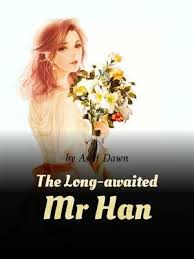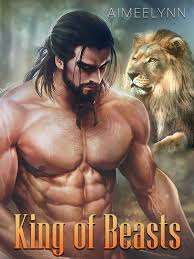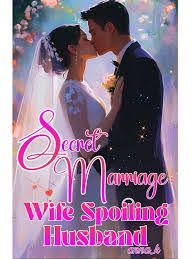The Story in 3 Sentences
A woman betrayed and discarded after five years of marriage is granted a second chance, waking up on her wedding night determined to end the relationship before it can destroy her again.
Her preemptive divorce contract, designed to create emotional distance, becomes the catalyst for a complex dance of misunderstandings, forced proximity, and the slow, painful unraveling of her husband’s icy facade.
From a cycle of mutual pain and distrust, their relationship transforms into a fiercely protective and deeply devoted partnership, proving that even the most broken bonds can be reforged stronger than before.
Why It Stands Out
1. The Iceberg CEO Who Melts in Private
This novel delivers the ultimate fantasy of the cold, domineering male lead whose entire world revolves around one woman. Li Sicheng’s transformation from a man who sees his wife as a stranger to one who is utterly, possessively devoted is the core appeal. His public aloofness contrasts sharply with his private vulnerability and unwavering loyalty to Su Qianci, creating a character whose depth and devotion have earned him a cult following among readers.
2. Rebirth Done Right: Less Vengeance, More Self-Worth
Unlike many revenge-centric reincarnation stories, “The 99th Divorce” focuses on Su Qianci’s journey towards self-preservation and reclaiming her dignity. Her initial goal isn’t to destroy her enemies but to escape a toxic fate. This shift in focus makes her more relatable; her victories come from setting boundaries and refusing to be a victim, which resonates deeply with readers tired of passive protagonists.
3. A Love Story Forged in Fire, Not Flowers
The romance is not gentle or easy. It’s messy, often painful, and built on a foundation of past trauma and present friction. This raw, unvarnished portrayal of a relationship healing from deep wounds is what makes it stand out. The love story feels earned, not given, making the eventual payoff of their unwavering commitment to each other incredibly satisfying for those who stick with it.
Characters That Leave a Mark
There’s **Tang Mengying **– the picture-perfect best friend whose angelic facade hides a viper’s heart, orchestrating Su Qianci’s downfall in her past life and continuing her schemes with chilling elegance.
You’ll meet Yu Lili, who starts as a seemingly frivolous socialite but reveals layers of cunning and loyalty, becoming an unexpected but crucial ally in Su Qianci’s new life.
And Qin Shuhua? They’re the one who serves as the family’s moral compass and a rare source of warmth, their teasing and support offering moments of levity and genuine care amidst the surrounding chaos.
The Flaws Fans Debate
The female lead’s perceived lack of growth, as some readers feel she remains overly passive or slow to act against clear threats despite her second chance at life.
The repetitive nature of the misunderstandings, where communication breakdowns between the leads fuel conflict for hundreds of chapters, testing reader patience.
The novel’s heavy reliance on mature and non-consensual themes as a primary driver of both plot and character interaction, which many find gratuitous and disturbing.
Must-Experience Arcs
Ch. 1–50: The Divorce Contract Gambit – Su Qianci, armed with memories of her tragic end, serves her husband divorce papers on their wedding night, setting the stage for a marriage of cold civility that quickly begins to crack under unexpected pressures and his growing, confusing interest.
Ch. 300–600: Unmasking the Viper – The focus shifts to systematically exposing Tang Mengying’s web of lies and manipulations, with Su Qianci, now more confident, turning the tables in a series of satisfying public confrontations and revelations that begin to shift the family’s perception.
Ch. 2000–2321: The Unbreakable Vow – After weathering countless storms, the final chapters depict Li Sicheng and Su Qianci’s relationship at its most solid, facing down final threats with united front and culminating in tender, hard-won declarations of love that affirm their journey from strangers to soulmates.
Killer Quotes
“Divorce after one year, the terms of the contract are as follows: husband and wife shall not share a room or bed. Intimacy forbidden?”
“You broke the contract, Mrs. Li.”
“How about me? What am I?” “What is he? Su Qianci suddenly did not know how to define the man in front of her. Husband?”
Cultural Impact
The novel sparked intense debate across reader forums, becoming a benchmark for discussions on the “cold CEO” trope and the ethics of redemption arcs for characters involved in non-consensual dynamics.
Li Sicheng is frequently cited in fan communities as one of the most devoted, if initially flawed, male leads in the urban romance genre, with readers creating memes about his possessive protectiveness.
Despite its controversial elements, its completed status and high chapter count have made it a staple recommendation for readers seeking a long, dramatic, and ultimately satisfying romance with a powerful male lead.
Final Verdict
Start Here If You Want:
A sweeping, dramatic romance with a powerful, possessive male lead who undergoes a complete transformation.
A reincarnation story where the focus is on self-preservation and rebuilding self-worth rather than just revenge.
A completed, long-form novel that promises a definitive, happy ending after a tumultuous journey.
Study If You Love:
Complex character studies of individuals grappling with trauma, trust, and the possibility of redemption.
The evolution of relationship dynamics from hostility and distrust to deep, unwavering loyalty and love.
The tropes and cultural underpinnings of the modern Chinese urban romance genre, particularly the “contract marriage” and “cold CEO” archetypes.
Avoid If You Prefer:
Stories where the female lead is consistently proactive and strategically brilliant from the outset.
Romances that avoid dark or mature themes, particularly those involving coercion or non-consensual situations.
Plots that resolve conflicts quickly through open communication rather than prolonged, angst-driven misunderstandings.





